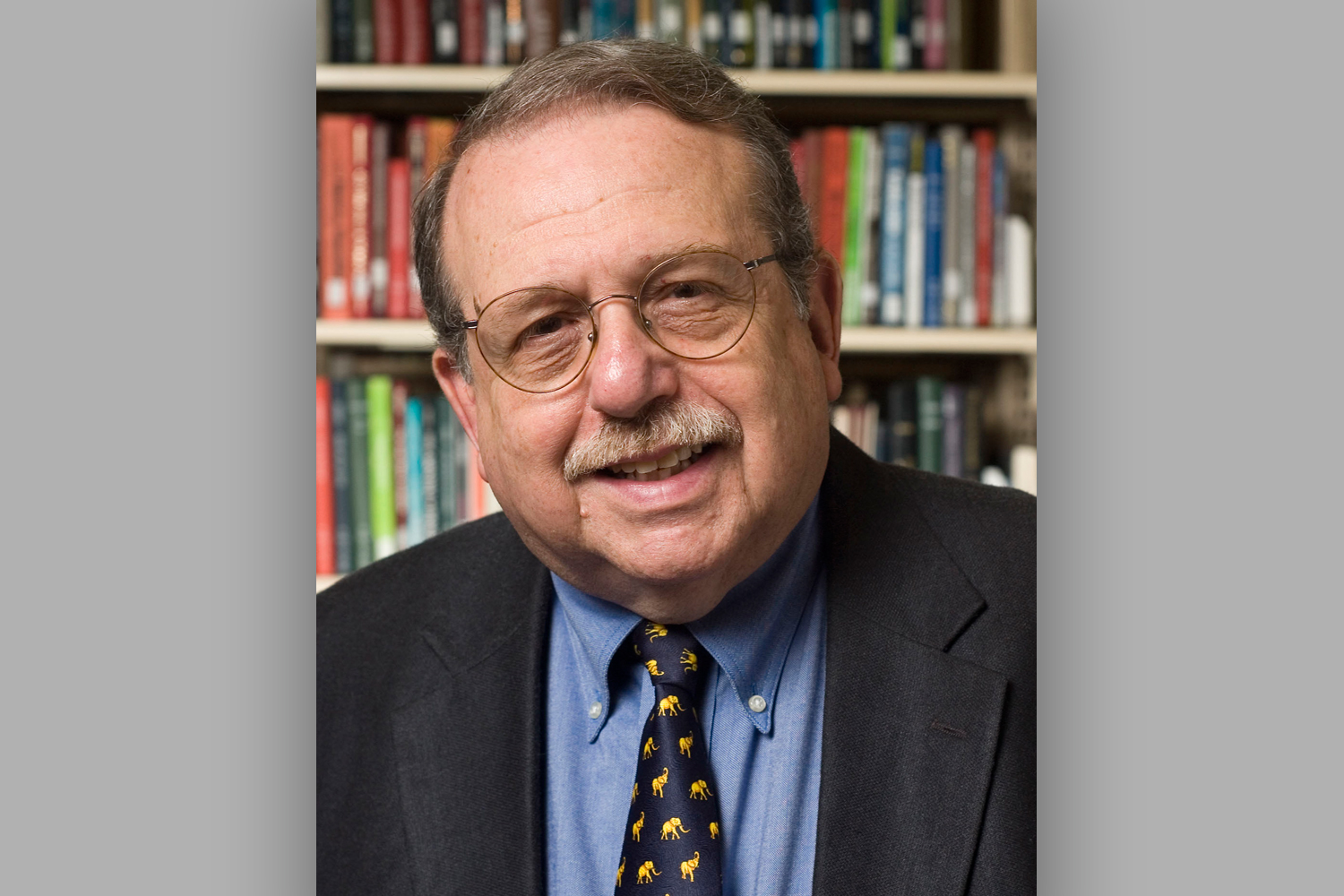Dr. Bruce Stave, Board of Trustees Distinguished Professor Emeritus and a former head of the Department of History, passed away on Saturday, Dec. 2, from complications of congestive heart failure.
Stave began his teaching career at the University of Bridgeport in 1965 and came to the University of Connecticut in 1970 after a year teaching as a Fulbright professor in India. The India assignment transformed his life as it made him and his wife into lifelong world travelers, who visited over 100 countries and all seven continents.
At UConn, he chaired the Department of History between 1985 and 1994 and from 1978 for three decades directed the oral history program. As the new millennium began, Stave was among the first group of faculty designated Board of Trustees Distinguished Professors. In 1976, he was president of the Federation of University Teachers during the campaign that brought collective bargaining to the university. He later served on the executive committee and bargaining team of the institution’s American Association of University Professors chapter, and was chapter President in 1994-1995. He also actively participated in the University Senate as a member of its executive committee and chair of several standing committees.
As a scholar, he earned national and international recognition in the fields of urban and oral history as a result, among other work, of the more than two dozen historiographic interviews with other urban historians that he published between 1974 and 2004 in the Journal of Urban History, for which he served as Associate Editor. He was editor of the Oral History Review, the field’s leading journal, from 1996-1999, and subsequently served on its editorial board. With Linda Shopes, he was co-general editor of the Palgrave/Macmillan Studies in Oral History series, which published thirty volumes with several more underway. His own publications included eleven authored or edited books ranging from his first, The New Deal and the Last Hurrah, published in 1970 to Red Brick in the Land of Steady Habits, the narrative of the University of Connecticut’s history from its founding in 1881 to the celebration of its 125th anniversary in 2006, for which it was commissioned.
When asked which book was his favorite, he usually would respond that it would be like a parent asked to designate his or her favorite child. When pressed, however, he named From the Old Country, an oral history of European immigration to the United States on which he collaborated with John F. Sutherland
Within the profession, Stave was active in a number of organizations and served as an officer in several. He was a president of the New England Historical Association and also of the New England Association of Oral History and the Connecticut Coordinating Committee for the Promotion of History, which he founded in 1979; he served as a vice president of the Connecticut Academy of Arts and Sciences and on the Boards of Connecticut Humanities Council and the Association for the Study of Connecticut History. In 2008, he was Acting Connecticut State Historian and the Governor named him to the Connecticut Abraham Lincoln Bicentennial Commission. In recent years, he volunteered as a reader with the Connecticut Radio Information System (CRIS), the network for the sight impaired, for which he did the travel program. In the town of Coventry, where he resided since 1970, he was active for many years on the Democratic Town Committee, serving as chair during the early 1990s, and also was president and on the board of the Booth & Dimock Library.
With his wife, he founded the Northeastern chapter of the Connecticut Civil Liberties Union in 1971. He created the program, and conducted a series of interviews with local personages, “Coventry Conversations,” on local access television and on-demand online. His interests, however, extended far beyond the state and locality, and aside from the Fulbright award in India mentioned above, he held Fulbright professorships in Australia, New Zealand, and the Philippines in 1977, and at Peking University, China’s leading institution of higher education, in 1984-1985. In addition, he lectured, participated in seminars or offered workshops in more than a dozen other nations.
Professor and Head of History Chris Clark says that Stave and his wife, Sondra Stave, “have been stalwart friends of the Department, supporting graduate students through a generous scholarship fund, and attending numerous departmental and public events over the years.”
“He was a warm personal friend to many, and I was myself moved by and appreciative of the welcome, encouragement, and moral support he offered me, first as a newcomer to UConn and latterly as one of his successors as Department head,” says Clark. “I know I will not be alone in missing him.”
In his memory, act kindly to others. Contributions may be made to the University of Connecticut Foundation for the Bruce M. and Sondra Astor Stave Prize in Recent American History or to a charity of your choice. A memorial gathering will be organized on campus in spring 2018.



